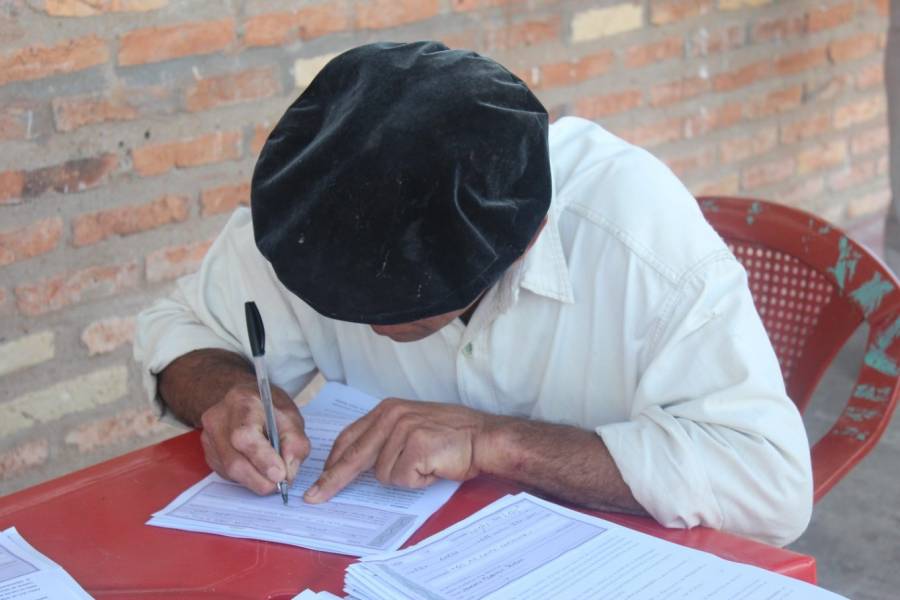Writing a will isn’t the most enjoyable thing on a person’s agenda. After all, by doing so, you’re actively making plans for your impending death and admitting it as inevitable. That might help to explain why so many people avoid using this important estate planning tool. In fact, according to an AARP poll, two out of every five Americans over 45 have not prepared a will.

However, this is one of the most important things you can do to ensure your loved ones are well cared for after you’ve left this world. Your heirs will have fewer headaches, and your soul might be able to rest in peace knowing that a lifetime’s worth of belongings will go to the right people. That being said, here are a few tips for preparing a will that will help you ensure you’re doing everything the right way.
Hire a probate attorney
Even if your will is reasonably straightforward, probate can consume a lot of time and money, delaying the distribution of your assets to your loved ones and adding significant stress. After all, the last thing anyone wants to do after a death in the family is to endure lengthy meetings with lawyers and multiple court appearances. Plus, there is always the matter of your assets not being probably distributed amongst your rightful heirs
However, by hiring online probate services or a will and probate attorney, you can ensure that the appropriate individuals receive the property correctly. Plus, these professionals know the procedures to follow to get a Grant of Probate. Ultimately, a probate attorney ensures that your assets are handled correctly at the time of your death, especially if you forget to write a will.
List down assets you own
Whether your estate is subject to taxation after your death depends on your assets’ value and how they are kept. So, before meeting with a lawyer to write a will, it is advisable to compile a list of your assets and obligations with at least rough estimates of their values. This will allow you to learn what you own and what asset to hand off to a particular person.
Furthermore, doing so will also let you know whether your beneficiaries can take advantage of tax benefits on charitable gifts. For instance, when you pass away, the inheritance tax rate is reduced from 40% to 36% if at least 10% of your taxable estate is donated to charity.
Don’t forget to create a Power of Attorney
Most people immediately think of wills when considering estate planning, but establishing a Power of Attorney (also known as a living will or personal directive) is also a crucial step in estate preparation. You can appoint someone to manage your property, money, personal life, and medical treatment in the case of an emergency. This might involve managing your finances, keeping up with your property, or making healthcare decisions.
Consider your will as a life insurance policy and your Power of Attorney as a type of disability insurance that protects you while you’re still alive.
Choose an executor
An executor is responsible for carrying out the provisions of your will and settling your inheritance after your passing. The executor of your will may also be one of its beneficiaries. This person must be someone you have complete confidence in, be older than 18 at the time of your death, and be mentally competent in carrying out their assigned duties.
However, consider naming two executors in your will. This will ensure that if one person dies or can’t execute your will for any reason, the other person can step in and carry out your will. Also, ensure that the selected executors are willing to cooperate when it comes to carrying out the duties assigned to them.
Include your cemetery and funeral plans
It’s always a good idea to think about your funeral and burial arrangements while you write your will. Having your final arrangements in place will make your loved ones feel less stressed and remove any doubt about what you would have desired. Pre-planning might also assist in removing future financial strain.
Whether you want a typical funeral or a more unusual send-off, it’s crucial to record these arrangements for your family so they won’t have to guess what you would have wanted. In fact, your wishes can also be recorded as part of your pre-arrangements with a funeral home.
If your will is not read until after the funeral, you should let your loved ones know where you have put your funeral and cemetery plans. So, it’s preferable to put your preferences down in a separate document that your family can quickly access.
One thing to note is that funeral and cemetery plans mentioned in a will aren’t legally binding. However, most people will respect what a person has written in their will to remove any uncertainties.
Include special gifts
Specific gifts, sometimes known as bequests, are identified items of property or monetary sums given to others after your death. Examples include money, jewels, works of art, real estate, family heirlooms, or sentimental objects. Anything you don’t designate as a gift will be included in your residual estate.
So, list your possessions and other items you want to mention in your will before you begin drafting it. However, experts recommend you create a list of such specific gifts in advance. After all, you can overlook some important details if you attempt to think of everything at once.
List key people
Including people you want to give important estate-related duties to is crucial when you sit down with your lawyer to draft your will. These include:
- Guardians and custodians for your minor children
- Property and personal care attorneys
All of these jobs come with a lot of responsibility. Before putting your choices in writing in your will, you should take the time to speak with these people to ensure they understand your desires and are prepared to take on the duty. If your top candidates are unable or unwilling when the time comes, you should also consider a few fallback options.
Conclusion
Only a handful of people consider thinking about their death and what may happen to the people in their lives if they pass away from this world. However, making a will is the best method to guarantee that your estate is managed according to your preferences. So, follow the tips mentioned above, and you will be well set to create a will that honors your wishes long after you’re gone!

Founder Dinis Guarda
IntelligentHQ Your New Business Network.
IntelligentHQ is a Business network and an expert source for finance, capital markets and intelligence for thousands of global business professionals, startups, and companies.
We exist at the point of intersection between technology, social media, finance and innovation.
IntelligentHQ leverages innovation and scale of social digital technology, analytics, news, and distribution to create an unparalleled, full digital medium and social business networks spectrum.
IntelligentHQ is working hard, to become a trusted, and indispensable source of business news and analytics, within financial services and its associated supply chains and ecosystems



























